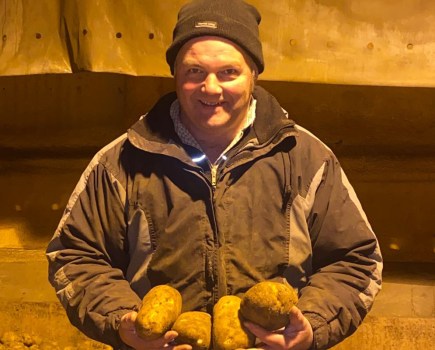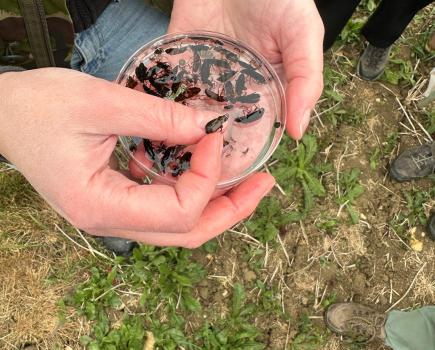 This autumn is proving to be one of those awkward ones – drilling has fallen dramatically behind and many growers will be nervously looking up the latest drilling dates for varieties as their bags of seed corn gather dust in the barn.
This autumn is proving to be one of those awkward ones – drilling has fallen dramatically behind and many growers will be nervously looking up the latest drilling dates for varieties as their bags of seed corn gather dust in the barn.
The story is even worse for some potato growers who are facing the second bad year in a row – ironically one because of a drought, the other because of the wet. There are still crops in the ground and plenty of fields that have ruts that would make even the least soil-aware farmer blush in embarrassment.
Farming has always been a high-risk business, with a high capital investment and very limited cash. With the best laid plans gone to pot this autumn, financial uncertainty is likely to be the net result for many for a whole host of different reasons – poor blackgrass control, crop loss, lower gross margins from spring crops, unused pre-emergence herbicides in the spray shed…
There are few eras in farming when there’s been so much uncertainty – Brexit, changes in support payments, climate change and all the ramifications of the measures that could be used politically to address it. Combine all that with the knock-on effects of a difficult harvest and autumn then farming can soon feel like climbing a mountain and constantly falling back to the bottom.
Last month the AHDB’s Hereford monitor farm held a meeting on managing stress. Professor Alan White from The Centre for Men’s Health talked about how to take control of stress and ensure that you’re not adding to it unwittingly. According to a friend that was there, the meeting was well attended and the conversation from fellow farmers was frank and supportive.
One of the areas covered in the meeting was recognising the signs of depression in others and knowing what to do. It may be useful information for agronomists who have an unusual business relationship with growers – they often act as sounding boards, confidents and friends. Listening is something they do a lot of, but I wonder how many have training in their de facto role of giving ‘counsel’?
At this time of year when there’s precious little agronomy going on, who else would you talk to about the stack of unused pre-ems sitting in the spray shed, the frustration of having an idle drill and a backlog of drilling, the price of wheat or which spring crop to switch into? They’re conversations every agronomist is more than willing to engage in, and a problem shared is a problem halved, but for some it’s hard to shrug off the pressures their clients and friends are under – feeling powerless to be of much help.
Maintaining an inner Santa and feelings of ‘ho, ho, ho’ isn’t always easy. Depression happens when your brain chemistry gets out of balance, it’s not a weakness. Let’s talk about it because one in five of us has been there.
The pressure British farmers are under is unrelenting, with one farmer every week taking his own life. Most of us in the industry have connections with someone that has – it’s a dreadful statistic. No one should ever end up feeling the best way out is to no longer be alive and no one should ever have to deal with wondering if they could have done something to prevent a suicide.
The suicide rate in farming exceeds many other professions but it’s still just the measurable tip of the iceberg. Levels of stress, depression and despair sit in the many tiers beneath and all of these are life-impacting and even life-limiting when it’s prolonged and extreme.
Forty years ago, I lost my father to the stresses of farming. Having spent most of his career in the Royal Navy before turning his hand to growing crops, he wasn’t a man you’d think would lie awake at night worrying. He was known as ‘the Commander’ and he was phenomenally capable but the stress of the uncontrollable took a toll on his heart.
It’s really good news mental stress is on the farming agenda because for too long there’s been a stigma attached to mental health, and let’s face it, there are very few of us who have escaped periods of feeling down or some degree of the ‘black dog’ – depression has many forms. It’s human, it’s understandable, it’s often temporary and it’s mendable if you have the right strategies and support.
https://www.yanahelp.org/index.html
Based in Ludlow, Shrops, CPM technical editor Lucy de la Pasture has worked as an agronomist. @Lucy_delaP




